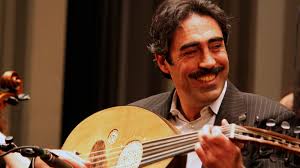The Arabic music scene is a vibrant tapestry woven from rich traditions and contemporary influences. While legendary names like Umm Kulthum and Fairuz remain cherished icons, a new generation of Arabic musicians is pushing boundaries and captivating audiences worldwide.
This article delves beyond the classics to explore five contemporary Arabic musicians who are making waves in the music industry:
- Yasmine Hamdan (Lebanon): A pioneer of electronic Arabic music, Yasmine Hamdan blends traditional Arabic melodies with electronica and experimental sounds. Her captivating vocals and introspective lyrics explore themes of identity, displacement, and the complexities of the Arab world. Hamdan’s music is a perfect entry point for those curious about the fusion of electronic music with Arabic influences. Tracks like “Ya Lili” and “Halis” showcase her ability to weave together haunting melodies with modern electronic beats, creating a familiar and innovative sound.
- Hamza Namira (Palestine): This Palestinian singer-songwriter weaves together hip-hop, soul, and traditional Arabic music elements. His lyrics often touch on social and political issues, offering a powerful voice for his generation. For those who enjoy music with a message, Hamza Namira is a must-listen. Tracks like “Li Ana” (For Myself) and “Shlon” (How Are You?) tackle themes of identity, displacement, and the struggles faced by Palestinians. His music blends catchy melodies, insightful lyrics, and a soulful vocal delivery that resonates with listeners worldwide.
- Mashrou’ Leila (Lebanon): Formed in Beirut, Mashrou’ Leila is a genre-bending phenomenon. Their music incorporates rock, electro, and Arabic influences, often tackling themes of love, social justice, and LGBTQ+ rights. Their electrifying live shows and outspoken lyrics have symbolized artistic freedom in the Middle East. If you’re looking for a band that defies categorization and pushes boundaries, look no further than Mashrou’ Leila. Songs like “Shimmy” and “Bahr” showcase their energetic sound and ability to blend Arabic influences with rock and electronic elements. Their music is a powerful force for social change and artistic expression.
- Narjis (Morocco): Hailing from Morocco, Narjis is a rising star in the world of chaabi, a popular Moroccan street music genre. Her powerful vocals and modern take on chaabi traditions have garnered her a loyal following and challenged perceptions of the genre. For those seeking a fresh take on a traditional sound, Narjis is a breath of fresh air. Tracks like “Ya Khalti” (My Aunt) and “Ghanja Marra” (Another Song) showcase her powerful voice and her ability to infuse chaabi with contemporary influences, creating a sound that is both authentic and innovative.
- Mehdi Nassouli (Morocco): This Moroccan DJ and electronic music producer blends traditional Gnawa music with contemporary electronic beats. His captivating live sets and innovative sound design have earned him international recognition and a place at the forefront of the global electronic music scene. If you’re a fan of electronic music with a unique twist, Mehdi Nassouli is a must-listen. Tracks like “Darbuka” and “Derb Sultan” showcase his ability to combine the hypnotic rhythms of Gnawa music with modern electronic production techniques, creating a danceable and mesmerizing sound.
A World of Sounds to Explore:
These are just a few examples of the diverse and exciting music emerging from the Arabic world. From electronica and hip-hop to chaabi and rock, there’s something for everyone to discover. So, if you want to expand your musical horizons, delve into the rich sounds of contemporary Arabic music. You might just find your new favorite artist.


